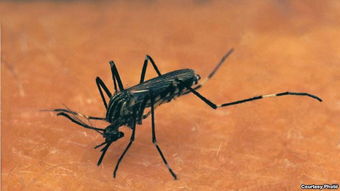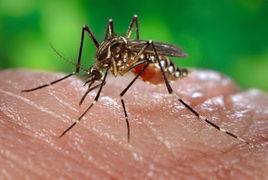
Understanding Mosquito Bites: A Detailed Look
Have you ever found yourself scratching at a mysterious bump on your skin, only to realize it’s a mosquito bite? Mosquito bites are a common occurrence, especially during the warmer months when these tiny insects are most active. In this article, we’ll delve into the details of mosquito bites, exploring their appearance, symptoms, treatment, and prevention methods.
What Does a Mosquito Bite Look Like?

Mosquito bites can vary in appearance depending on the individual and the species of mosquito. Typically, they are small, red, and itchy bumps on the skin. Here are some key features to look out for:
- Redness: The area around the bite may become red and inflamed.
- Bump: The bite itself is usually a small, raised bump.
- Itching: Mosquito bites are often itchy, which can lead to scratching and potential infection.
- Swelling: The bite may swell slightly, especially if you’re allergic to mosquito saliva.
It’s important to note that some people may not react to mosquito bites at all, while others may have a severe allergic reaction.
Understanding the Symptoms

While most mosquito bites are harmless, they can cause discomfort and itching. Here are some common symptoms to look out for:
- Itching: This is the most common symptom of a mosquito bite.
- Inflammation: The area around the bite may become inflamed and red.
- Pain: In some cases, the bite may be painful, especially if you’re allergic to mosquito saliva.
- Swelling: The bite may swell, particularly if you’re allergic to mosquito saliva.
- Bruising: In rare cases, the bite may cause bruising.
It’s important to monitor the symptoms and seek medical attention if they worsen or if you experience an allergic reaction.
Treatment Options

There are several ways to treat mosquito bites and alleviate the symptoms. Here are some common treatment options:
- Over-the-counter remedies: Anti-itch creams, lotions, and gels can help soothe the skin and reduce itching.
- Hydrocortisone cream: This over-the-counter cream can help reduce inflammation and itching.
- Calamine lotion: This can help soothe the skin and reduce itching.
- Ice packs: Applying an ice pack to the bite can help reduce swelling and inflammation.
- Antihistamines: These can help alleviate itching and reduce inflammation.
It’s important to avoid scratching the bite, as this can lead to infection. If you notice signs of infection, such as increased redness, swelling, or pus, seek medical attention immediately.
Preventing Mosquito Bites
Preventing mosquito bites is the best way to avoid the discomfort and potential health risks associated with these insects. Here are some effective prevention methods:
- Use insect repellent: Apply a DEET-containing insect repellent to exposed skin and clothing.
- Wear long sleeves and pants: This can help protect your skin from mosquito bites.
- Remove standing water: Mosquitoes breed in standing water, so it’s important to remove any containers that collect water.
- Use screens: Install screens on windows and doors to prevent mosquitoes from entering your home.
- Use fans: Mosquitoes are weak fliers and can be deterred by fans.
By following these prevention methods, you can significantly reduce your risk of being bitten by mosquitoes.
Conclusion
Mosquito bites are a common and often irritating problem, but they can be managed effectively with proper treatment and prevention. By understanding the appearance, symptoms, and treatment options for mosquito bites, you can take steps to protect yourself and your loved ones from these pesky insects.



